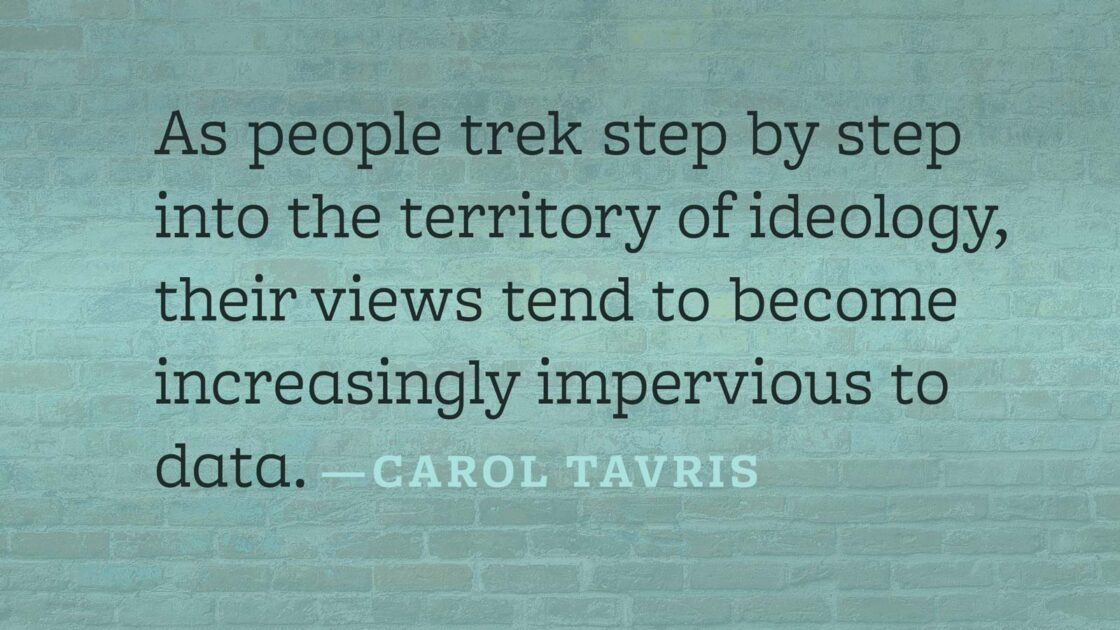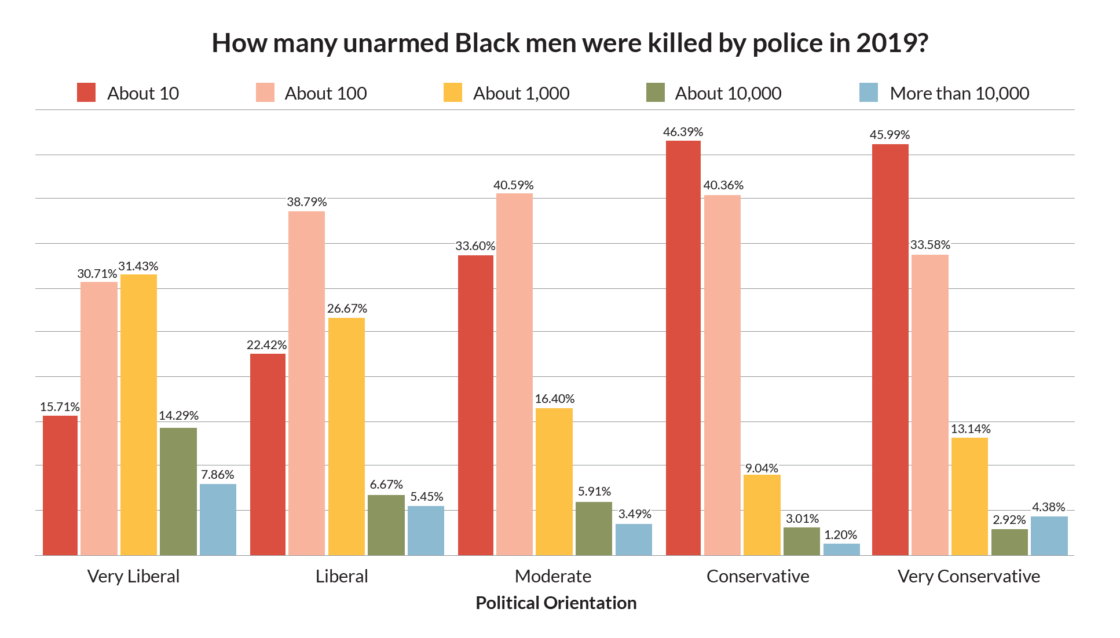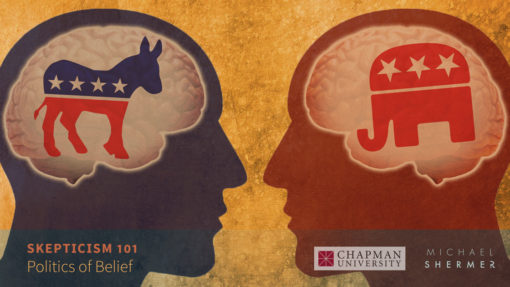political bias

Instead of liberal-conservative bias in education we should think about biases and orthodoxies by topic. Each side values truth and cites facts, but only if they confirm what they already believe. Ideological and Political Bias in Psychology (edited by Frisby, Redding, O’Donohue, & Scott Lilienfeld) details the harm to psychological science, academia, and society from today’s very illiberal ‘woke’ ideology.
While many essays have addressed the social events and psychological traits that drive polarized thinking, the neural underpinnings of uncertainty and polarization are largely unknown. We know the brain processes information and makes decisions, but we know little about how politically polarized information is encoded, and even less about how attitudes about uncertainty influence that processing. Why is it important? In this article Natasha Mott explains that uncertainty may be seen as a threat, which moves individuals toward certain positions…

In his usual data-driven style of analysis, statistician and sociologist Kevin McCaffree, who also runs the Skeptic Research Center, presents the SRC finding about policing and race in America, and how political beliefs and orientation skews our perceptions of what is actually happening on the streets of the United States.

Dr. Michael Shermer explains how we arrived at the Left-Right spectrum, both historically and evolutionarily, and the numerous metaphors used to wrap our minds around such complex systems as politics and economics.
Dr. Michael Shermer explains how we arrived at the Left-Right spectrum, both historically and evolutionarily, and the numerous metaphors used to wrap our minds around such complex systems as politics and economics. This Chapman University lecture is based on chapters in his books The Believing Brain, The Moral Arc, and Giving the Devil His Due, along with the books of Christian Sith, George Lakoff, Alan Fiske, Jonathan Haidt, Thomas Sowell, and Steven Pinker.
In Science Salon # 89 Michael Shermer speaks with Richard Dawkins about his new book Outgrowing God. Dawkins explains how the natural world arose without a designer and challenges head-on some of the most basic assumptions made by the world’s religions. PLUS: Is the statement “We are living in a post-truth world” true? If your answer is “yes” then the answer is “no” because you’ve just evaluated the statement in an evidentiary manner, so evidence still matters and facts still…

Is the statement “We are living in a post-truth world” true? If your answer is “yes” then the answer is “no” because you’ve just evaluated the statement in an evidentiary manner, so evidence still matters and facts still matter. Harvard psychologist Steven Pinker explains why were are not living in a post-truth world in this deeply insightful cover story from Skeptic magazine 24.3 (2019).
Is freedom of speech harmful for college students? Why is this question even being asked? In this week’s eSkeptic, in light of recent eruptions of student protests at numerous American colleges and universities, Michael Shermer discusses the notions of trigger warnings, microagressions, the importance of political viewpoint diversity and freedom of speech.

Is freedom of speech harmful for college students? Why is this question even being asked? In light of recent eruptions of student protests at numerous American colleges and universities, Michael Shermer discusses the notions of trigger warnings, microagressions, the importance of political viewpoint diversity and freedom of speech.
How Science Makes Us Better People: Now Available in Paperback; Scientific American: Left Behind: Political Bias in the Academy; New Episode: The God Distraction Chapter Two: The Unknowable; Chapman University Debate March 7: God vs. Science Smackdown (Keith Ward vs. Michael Shermer)
What is good journalism? The fundamentals of objective journalism have traditionally been the following: present the five Ws, get both sides of the story, and most important, keep your opinions to yourself. Journalistic fairness (i.e., getting both sides of the story) was created to ensure that journalists could present the news as neutrally as possible. But can it be done? In this article from Skeptic magazine 6.1, Alexandra Kitty examines the nature and challenges of journalistic objectivity.













